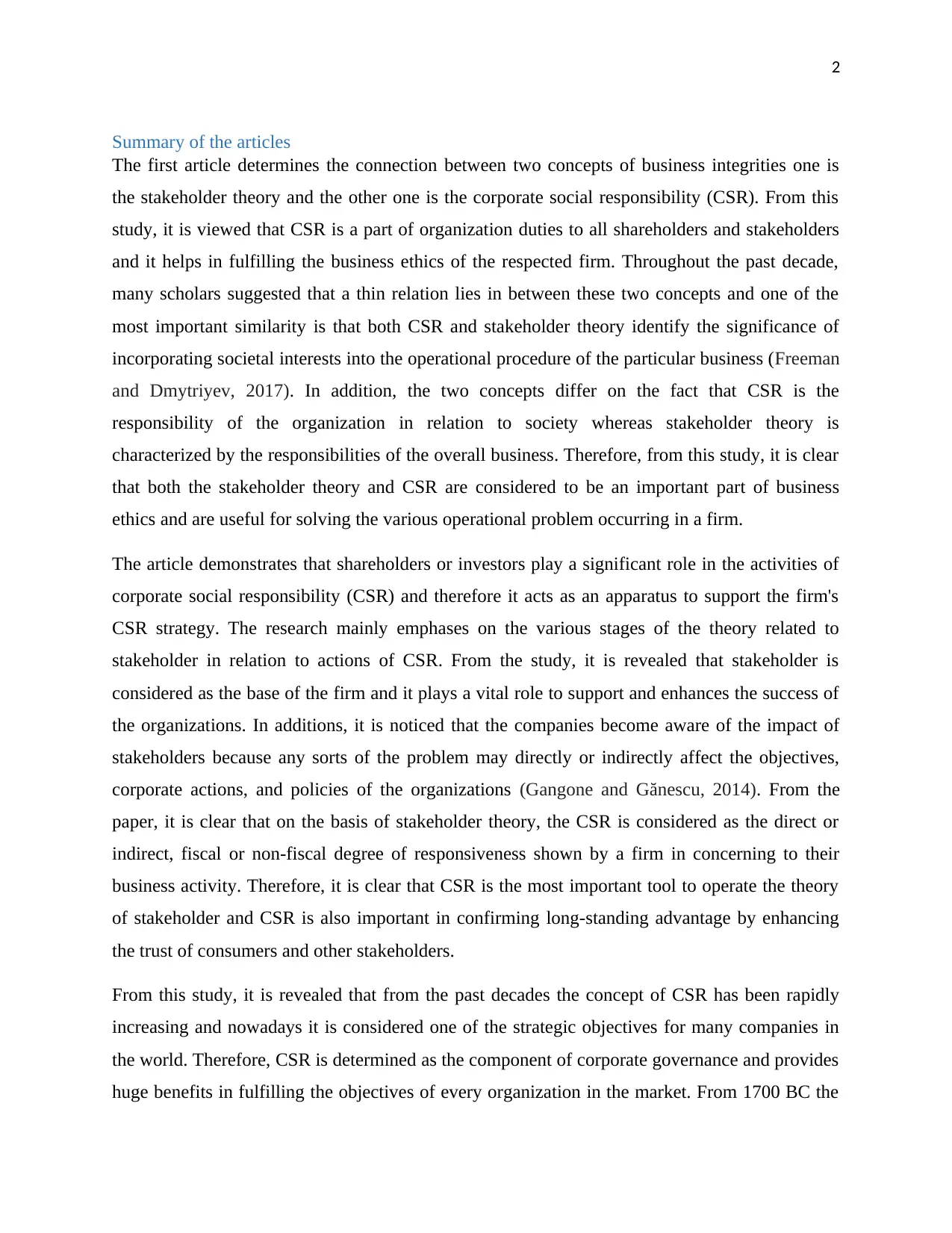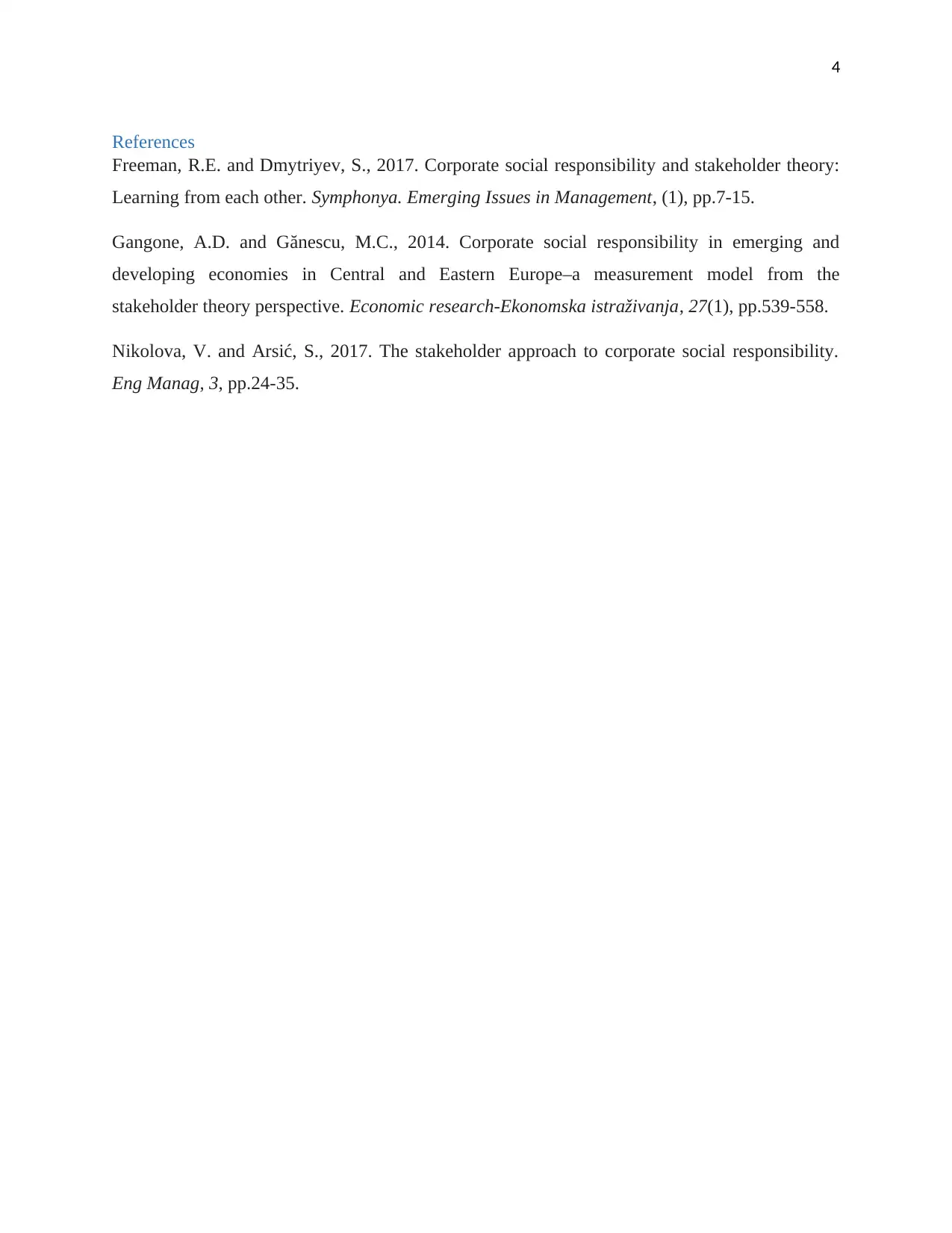The Concept of Corporate Social Responsibility and Stakeholder Theory
VerifiedAdded on 2021/10/16
|5
|698
|49
Essay
AI Summary
This essay examines the relationship between Corporate Social Responsibility (CSR) and Stakeholder Theory, emphasizing their importance in business ethics and corporate governance. The essay analyzes how CSR, as a part of organizational duties, aligns with stakeholder interests, contributing to a firm's ethical practices and operational problem-solving. It highlights that CSR is a direct or indirect response by a firm to its business activities based on the stakeholder theory. The paper references articles by Freeman and Dmytriyev, Gangone and Gănescu, and Nikolova and Arsić, which collectively illustrate that stakeholders are crucial for supporting CSR strategies and enhancing long-term advantages by building consumer trust. The essay further discusses the evolution of CSR, its strategic objectives, and the relevance of various CSR theories such as political, instrumental, ethical, and integrative theories in defining the relationship between society and business.
1 out of 5











![[object Object]](/_next/static/media/star-bottom.7253800d.svg)